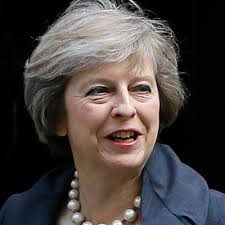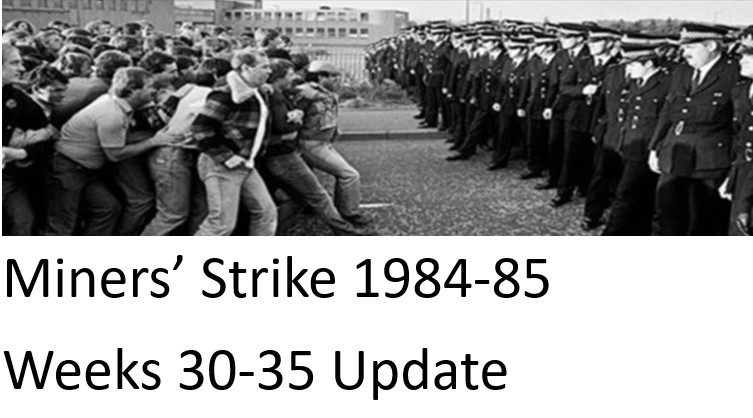The crisis in the Tory Party is moving it ever closer to a formal parliamentary split as the more intensive Brexit negotiations with the EU loom closer.
Michel Barnier, the EU’s chief negotiator, has made it clear that there can be no question of trade negotiations beginning in March unless the British Government makes it clear what kind of post-Brexit relationship it wants. But that is precisely what Theresa May is unable to do, balancing as she is between the ‘soft’ and the ‘hard’ Brexiteers in her own Cabinet. According to some reports, in a private meeting in Davos last week, the German Chancellor Angela Merkel described Britain’s position on Brexit as “bordering on farce” and that isn’t a million miles from the truth.
Since last summer, the May government has been under pressure from big business to accept a transition period and then after that continued membership of the customs union and business has successfully edged the government closer and closer to that position. The Government’s declared intention of having a “customs partnership” with “free and frictionless” borders and a ‘soft’ border between Northern Ireland and the Republic can have no other outcome but continued membership of the customs union, in all but name.
European, including British, manufacturers are deeply committed to the customs union and for them there can be no going back on it. As one commentator in the Financial Times explained: “During the manufacturing process, a modern car and its 30,000 or so component parts often travel across borders multiple times.” Under these circumstances, anything other than membership of a customs union (or the customs union) would be an economic disaster. All of the most authoritative economic commentators point to Brexit on any terms being damaging to British capitalism, but in the circumstances of a ‘hard’ Brexit – without a customs agreement – that is much more so.
The Tories’ prevarication over Brexit has won them few friends among the very people they are supposed to represent in parliament – big business. “If more than two thirds of Britain’s largest companies do not trust the government to negotiate a good deal on Brexit,” the Financial Times editorial comments, “the only surprise should be that the proportion is not higher.” (January 30, 2018). It continues, “At present, the UK’s only strategy seems to be to press on with Brexit – and leave it until later to explain what it will mean. This is a dangerous game.”
The EU has now outlined its conditions for a transition period, long called-for by British and European business leaders. This transitional arrangement, lasting at least up to the end of 2020, means effectively that despite formally leaving the EU in March 2019, the UK will remain in the single market and customs union, paying into the EU as before, allowing free movement of labour as before and accepting the supremacy of the European Court of Justice as before. The only thing different would be that the UK would have forfeited its vote in the decision-making councils of the Union.
Theresa May, David Davis and, particularly, Philip Hammond have formally accepted these terms for transition. Indeed, Hammond let the cat out of the bag at the World Economic Forum in Davos last week when he said, at a meeting hosted by the CBI, that the UK Government was looking for only “modest change” in the UK’s relationship with the EU, post-Brexit. This led to a rebuke from May, for spilling the beans too early, but it also led to howls of outrage from the Tory right, some of them calling for Hammond to be sacked.
It will take only 48 Tory MPs to send letters to the chair of the backbench 1922 committee to trigger a vote of no confidence in their leader. Some press reports suggest that there are already 40 letters on his desk. “The window is closing on her time in office”, as one Tory MP put it. Theresa May is looking weaker and less effective with every week that passes. Increasingly, the press is speculating that she might face a challenge, with Brexiteers now in almost open revolt and particularly, as seems likely, the Tories suffer heavy losses in the local elections in May.
The whole trajectory of the Tory Party at the present time is towards internecine warfare on a scale not seen in the entire post-war period. The only thing tending to hold back an immediate civil war is the presence of a radical Labour Government waiting in the wings. The most rational Tory MPs can see that as bad as May might be, she is the only option they have, unless they want to trigger an early election that Corbyn would win.
The position of the Labour leadership is edging closer to the idea of remaining in the customs union. A planned ‘away-day’ for the entire shadow cabinet is in the offing and it may well lead to Labour formally adopting that position. Socialists should be clear – we can have no confidence at all in the ‘market’ as a system, whether it is based on the EU or anywhere else. A market economy cannot deliver the basic necessities of life for the working class, who are the big majority of the population. Decent housing, a good education system, a properly-funded NHS, free at the point of use, good secure jobs for young people – all of these things and much more are possible, but only on the basis of a democratically-owned and controlled, planned economy, rationally utilising the enormous resources, skills and potential that we have.
Fighting for a socialist transformation of the economy, with the main levers of production, distribution and exchange commonly-owned – that must be the central thrust of political debates and activity for socialists.
The productive powers of capitalism have long since outgrown the boundaries of the nation-state. That is why the giant trans-national corporations and their political representatives have created the EU, NAFTA, the Trans Pacific Partnership and a host of other customs unions. Socialists should support the idea of international trade and the closer integration of economic life across the boundaries of nation-states, not on ‘market’ terms, but between the constituent parts of a Socialist United States of Europe and as part of a World Federation of Socialist economies.
Labour should be opposed to all these secret deals and agreements done behind closed doors in the interests of global big business. It should stand for a planned economy, on the lines of Clause IV of the former Party constitution and in direct opposition to the capitalist market.
But if the giant market of the EU is not an answer to workers’ needs, then having 28 separate ‘national’ markets is an even more reactionary idea. There is absolutely nothing to be gained for working people by the imposition of new customs and tariff barriers between British and the European capitalism.
The Labour Party must vigorously oppose those who are at the forefront of the Brexit stampede – the economically illiterate, the racists and xenophobes and those Tory backwoodsmen who are still fighting the Battle of Britain. There can be no question of Labour sitting on its hands. Labour MPs must vigorously oppose Theresa May’s Brexit plans and Brexit on Tory terms. Brexit could well be the death-knell for the Theresa May Government. As the leader of Unite, Len McCluskey has argued, Labour can take advantage from the whole Brexit fiasco, not only opposing May, but demanding a general election. As the Tories split, Labour can offer a clear and decisive socialist lead, one that finds an echo not only among British workers, but across the whole of Europe.
February 1, 2018



